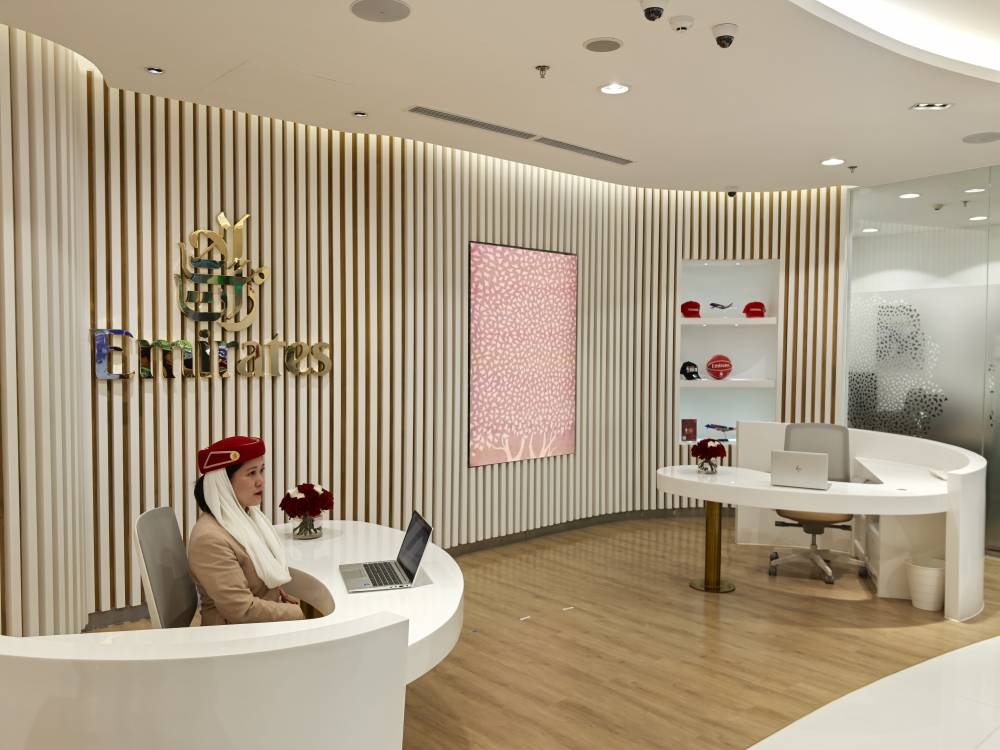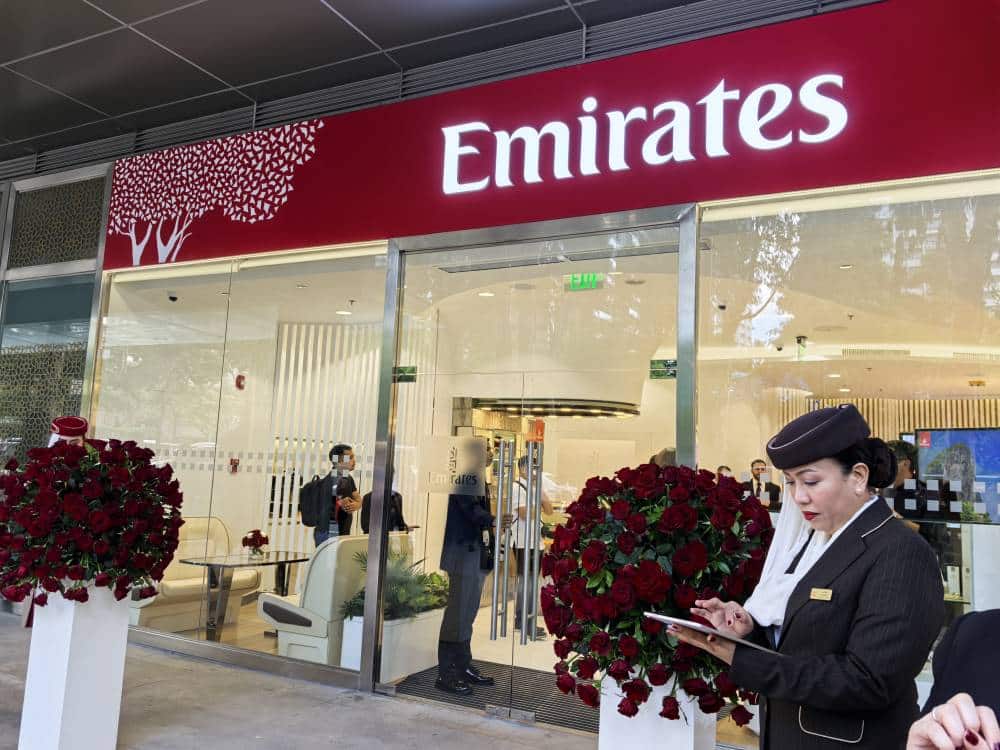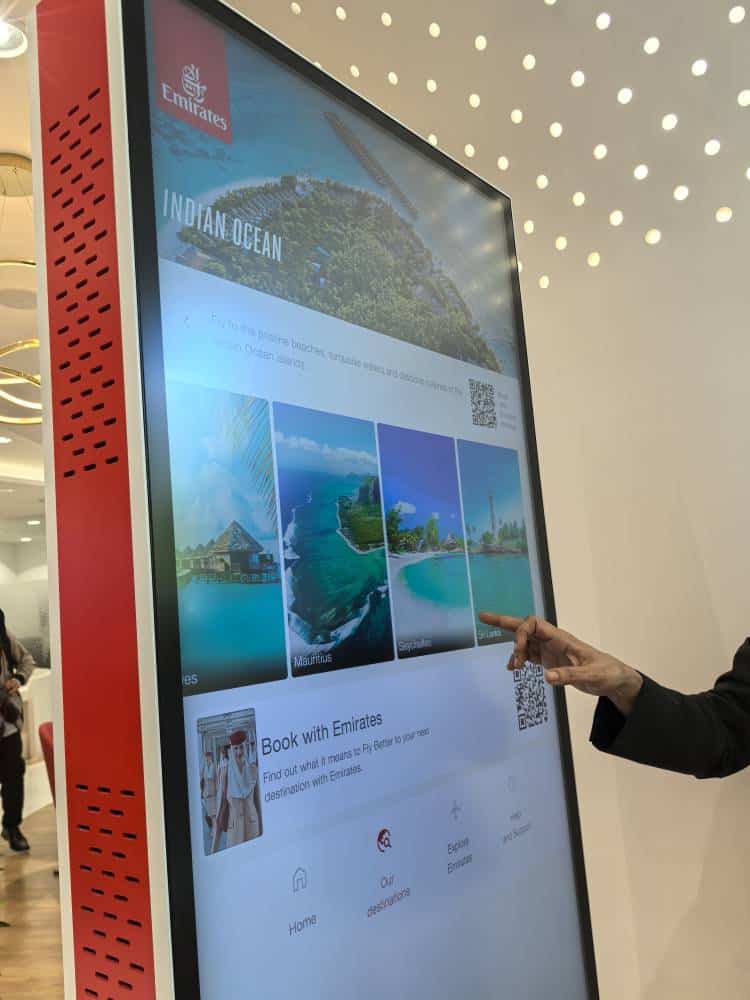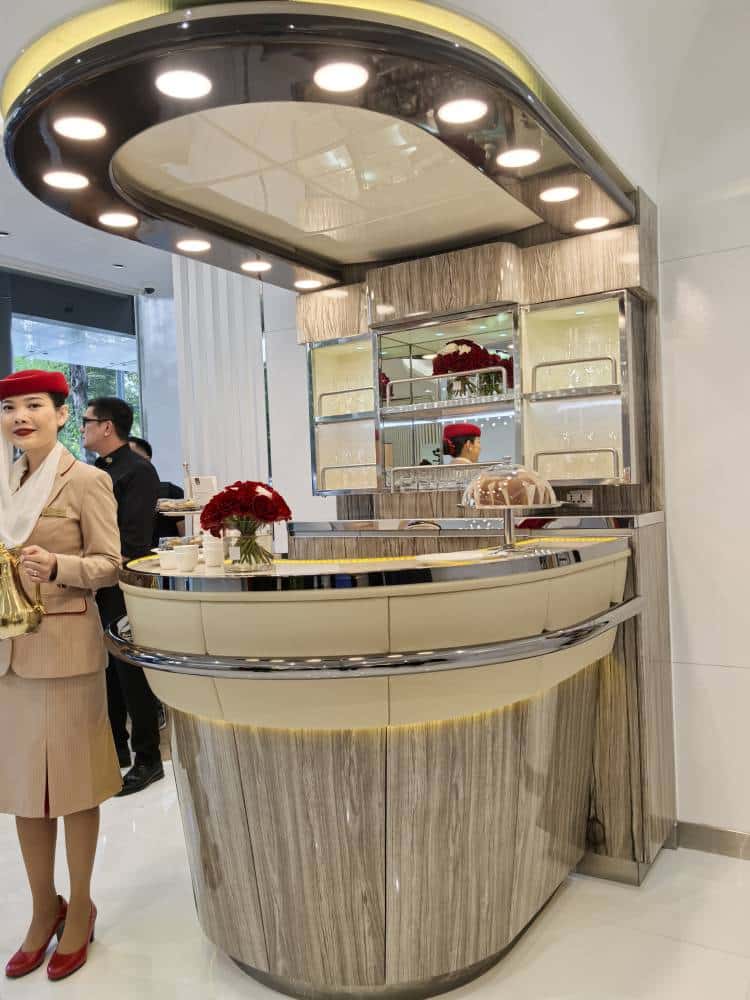Demand for first-class seats rising among Filipino jetsetters

EMIRATES WORLD Only the fourth retail store opened by Emirates after setting up similar hubs in Nairobi, London and Hong Kong
More Filipino travelers are willing to pay more for the enhanced experience of flying in first-class seats.
With Filipinos’ purchasing power on the rise, Emirates says in a report that it flew 3,166 first-class passengers in the first 10 months of 2024. The airline is confident that it will surpass the 3,609 passengers carried in first-class cabin in 2023.
These affluent consumers—a key growth driver for the airline—often travel from Manila to Dubai while enjoying luxury suite in the sky.
“We’ve noticed, especially after the pandemic, that premium travel demand is high in the Philippines. We saw that the product that’s missing is the first-class product. So today, we offer our passengers seamless connectivity through a first-class suite out of Manila to the world,” says Saeed Abdullah Miran, Emirates Philippines country manager.
A recent checking of the Emirates online booking portal shows that a round trip first-class ticket from Manila to Dubai costs more than $5,000 aboard the Boeing 777 aircraft. Flying business-class in the same route costs around $3,200 while economy fare costs about $990.

SHOP AND FLY The new Emirates retail hub in BGC is designed to serve as a one-stop shop where customers can explore Emirates products and services.
Voted as the “World’s Best First Class” in 2020 in a Tripadvisor survey, Emirates’ Boeing 777 offers “a private hotel room in the sky.” First-class tickets include access to a premium airport lounge, fine dining service, an exclusive Bulgari amenity kit as well as soft-leather seating patterned after the interior of Mercedes Benz S-Class.
In addition, Miran adds that the largest international airline has seen “a yearly positive growth” for the Philippine market. Last year, Emirates exceeded the prepandemic passenger volume amid the growing demand for leisure travel.
Crucial market
“[The Philippines] is one of our most important markets in the Far East region. We remain committed to this market [because] the demand here is huge,” he says in an interview.
Aside from leisure travelers, the Dubai-based airline also caters to business travelers and overseas Filipino workers. From the Dubai hub, they can also get connecting flights to other destinations, especially Europe.
Riding on the optimism of the resurgence of international travel, Emirates launched on Nov. 21 the Emirates World retail store at Shangri-La the Fort, the airline’s first store in Southeast Asia and its fourth in the world, next to its retail spaces in Nairobi, London and Hong Kong.

4TH IN THE WORLD Located at Shangri-La The Fort, Manila in BGC, the 221-square meter Emirates World store underscores the airline’s commitment to the Philippines
The 221-square meter Philippine store introduces a fully immersive Emirates experience equipped with smart technology, featuring an interactive self-service screen that allows customers to quickly browse flight options, check availability and even take selfies against background of popular destinations operated by Emirates.
“The new Emirates World Store in [Metro] Manila is designed to serve as a one-stop shop where customers can explore Emirates’ best-in-class products and services and provides visitors a glimpse of our onboard hospitality and excellence,” says Adnan Kazim, deputy president and chief commercial officer at Emirates.
What makes the retail space in BGC different from its overseas counterparts? It has a customized A380 onboard lounge display, giving customers a first-hand look at the premium touches that define Emirates’ world-class service.
Based on their studies, Miran says that Filipino customers still prefer human interaction coupled with immersive technology when booking their flights.

TOUCHSCREEN The store introduces a fully immersive Emirates experience equipped with smart technology, featuring an interactive self-service screen.
“[The retail store] in Hong Kong does not have a lounge or the in-flight bar (that is only available onboard the A380 aircraft). So you will find that in every shop, [there is] a different setup but the same basics,” he explains.
Committed to PH
With an estimated investment of $25 million over the next three years, the airline plans to launch more experiential stores around its network as part of its retail strategy. The next shops will open in Casablanca, Bangkok and Singapore.
It was in 1990 when Emirates started to service the Manila route. Now, it serves the country with 28 weekly flights, offering around 22,700 weekly seats to and from Dubai. In 2016, the airline included a circular service to Cebu and Clark.
“Our presence in Philippines is very strong. We are one of the first airlines from the GCC (Gulf Cooperation Council) that operated here and we started operating 34 years ago, and we kept our commitment by enhancing our service, enhancing our product and enhancing our network,” Miran adds.

HAPPY HOUR A fully functional replica of the Emirates A380 in-flight bar at Emirates World Store —PHOTOS BY VANESSA B. HIDALGO
The airline currently has more than 66,000 employees globally. Over 775 Filipinos are working as cabin crew and are among the top 10 foreign nationals in the cabin crew roster.
Last year, Emirates inked an interline agreement with Philippine Airlines (PAL), expanding its network to more domestic points in the Philippines via Manila, Cebu and Clark. Under the agreement, PAL’s customers can also benefit from increased connectivity to nine international points via Dubai including Amman, Birmingham, Cape Town, Dammam, Dublin, Lisbon, Manchester, Muscat and Riyadh.
In the first half of 2024, Emirates increased scheduled flights to eight cities including Cebu, Clark, Manila, Amsterdam, Luanda, Lyon, Madrid and Singapore.
Also, Emirates has increased connectivity options from its Dubai International Airport hub and is now servicing 148 destinations worldwide. The airline boasts of a large fleet of 258 aircraft in service, with an additional delivery of 319 coming.
To attract more passengers to its latest cabin products, Emirates recently rolled out its $4-billion retrofit program, wherein three A380s and five Boeing 777s had a major glow-up. They now feature a new 1-2-1 (one seat by the left window, two seats in the middle and one seat by the right window) layout of lie-flat seats with personal minibars in business class and the popular Emirates premium economy. INQ
